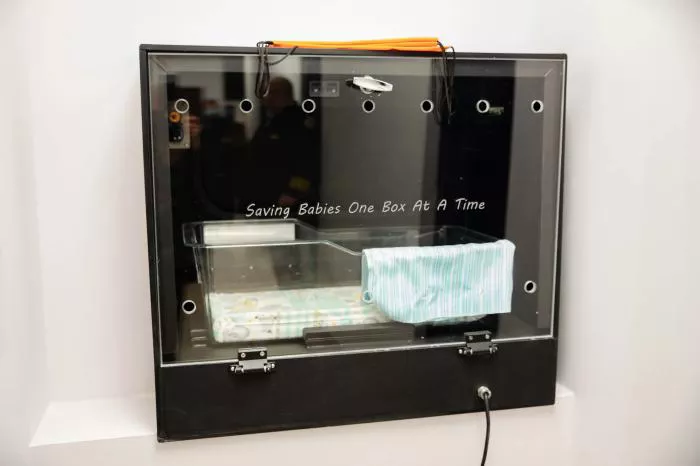Safe Haven laws, which exist in every U.S. state, provide parents with a legal and anonymous option to surrender their newborns safely. These laws aim to prevent neglect, abuse, or abandonment by offering parents an alternative when they feel unable to care for their child. In Georgia, the law allows for the surrender of infants up to 30 days after birth at designated safe locations such as fire stations, police stations, or hospitals.
The Scope of Georgia’s Safe Haven Law
Under Georgia law, a parent can relinquish their newborn by handing the baby to a staff member at any authorized safe haven location. This surrender must occur within 30 days of the child’s birth. Unlike in some other states, Georgia does not permit the use of Safe Haven Baby Boxes—a rapidly expanding option in other parts of the country.
Parents who choose this option are protected from prosecution for abandonment or neglect, and they are not required to provide any identification or documentation during the process.
“The law allows for immunity and anonymity,” explained Dr. Lauren Hebert, a physician at Memorial Children’s Hospital. “This is a process that facilitates safe transitions of care, making it possible for parents to surrender their child without fear.”
Varying Timeframes Across the Country
While Georgia’s timeframe is 30 days, this window differs across states. North Dakota, for example, allows parents to surrender their child up to one year after birth, the longest timeframe in the United States.
The flexibility of these laws ensures that parents in crisis have a viable option to surrender their baby safely, regardless of their circumstances or location.
How the Safe Haven Process Works
When a parent surrenders a baby under Georgia’s Safe Haven law, they must hand the child directly to a staff member at a designated location. The process is designed to prioritize the safety and well-being of the child.
According to Dr. Hebert, the protocol at Memorial Hospital includes notifying security and hospital administration immediately after a baby is surrendered. Medical personnel then assess the baby’s health and provide any necessary care. Following this, the Department of Family and Children’s Services (DFCS) is contacted to assume custody of the child.
Although Memorial Hospital has yet to receive a baby under the Safe Haven law, Dr. Hebert emphasized its importance. “This is absolutely a safe place for mothers to bring their children. If any mothers out there are considering this option, know that we are here to help,” she said.
Safe Haven Baby Boxes: A Growing Alternative
While Georgia does not currently permit Safe Haven Baby Boxes, these devices are becoming increasingly popular in other states. These climate-controlled boxes are installed on the exterior walls of fire stations or hospitals, providing parents with a completely anonymous way to surrender their child.
The boxes are equipped with an alarm system that notifies medical personnel as soon as a baby is placed inside. The exterior door locks automatically, ensuring the infant’s safety, while an interior door allows for prompt retrieval and medical attention.
Monica Kelsey, founder and CEO of Safe Haven Baby Boxes, explained the importance of these devices. “Some parents won’t walk into a hospital or fire station. A box offers complete anonymity, which can be crucial for those who feel they cannot reveal their identity,” she said.
The Impact of Safe Haven Baby Boxes
Since the first Safe Haven Baby Box was installed in 2016, 42 babies have been surrendered through these devices, including 13 in 2023 alone. There are currently 287 baby boxes across the country, with a growing movement to introduce them in more states, including Georgia.
For Kelsey, the mission is personal. Her own mother, a 17-year-old victim of sexual assault, surrendered her at a hospital just two hours after giving birth.
“My birth mom abandoned me because she felt she had no other option,” Kelsey shared. “This is my legacy, and I stand on the front lines of this movement as a voice for these children and their mothers.”
Challenges in Rural Areas
Georgia’s rural landscape poses additional challenges for parents seeking to surrender their child under the Safe Haven law. The state has 159 counties, 122 of which are classified as rural. Many rural fire stations are volunteer-staffed, making it more difficult for parents to find someone to whom they can safely surrender their baby.
Kelsey emphasized the importance of expanding access to Safe Haven Baby Boxes in rural areas. “For many parents, especially in rural communities, anonymity is not just a preference—it’s a necessity. These boxes could provide a critical lifeline,” she said.
A Lifesaving Law with Room to Grow
Since the introduction of Safe Haven laws in 1999, nearly 5,000 babies have been safely surrendered across the United States, according to the National Safe Haven Alliance. These laws continue to serve as a vital alternative for parents in crisis, ensuring the safety and well-being of newborns.
In Georgia, the existing framework provides a secure option for parents, but the absence of Safe Haven Baby Boxes limits access for those who require complete anonymity. Advocates like Monica Kelsey are working tirelessly to bring these boxes to the state, offering an additional layer of support for vulnerable parents and their children.
Conclusion
Safe Haven laws represent a compassionate approach to addressing the needs of parents who feel unable to care for their child. In Georgia, these laws provide a secure and anonymous way to surrender a newborn, ensuring the child’s safety and giving parents peace of mind.
As discussions around Safe Haven Baby Boxes continue, the hope is to expand access and offer even more options for parents in crisis. Whether through traditional surrender methods or innovative alternatives like baby boxes, the goal remains the same: to protect the most vulnerable and provide a safe path forward for both parents and their children.
Related topics:


